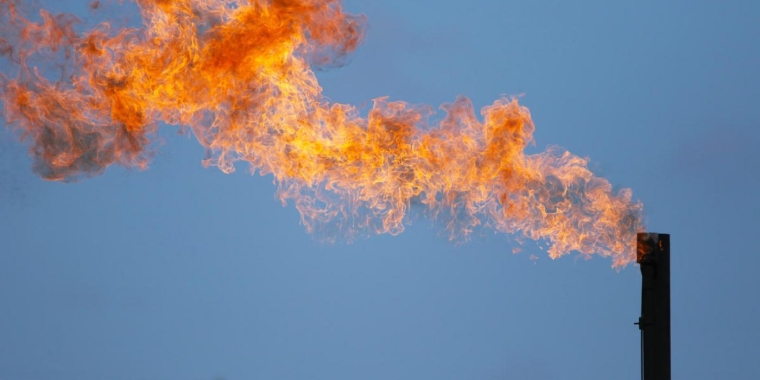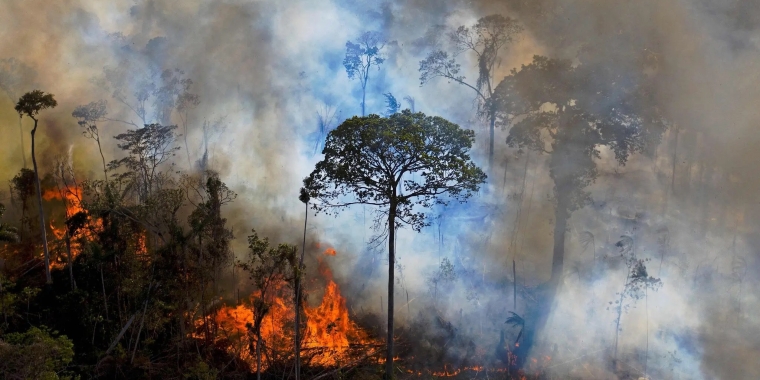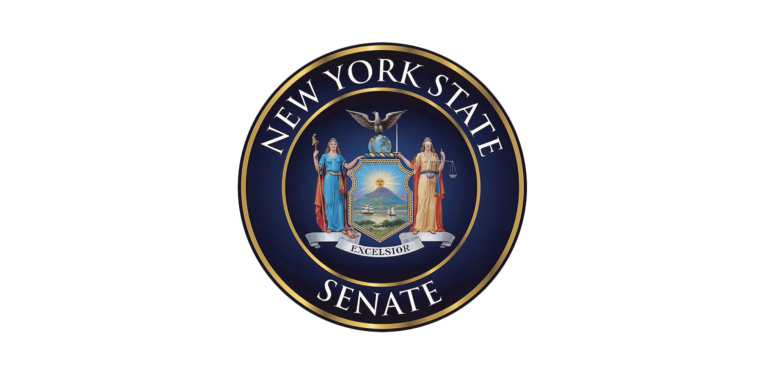
Krueger, May, Fahy Introduce Gas Transition & Affordable Energy Act
February 3, 2022

Albany – Today, State Senators Liz Krueger and Rachel May, and Assemblymember Pat Fahy announced the introduction of the Gas Transition & Affordable Energy Act, S.8198. The legislation would remove statutory requirements and ratepayer subsidies that drive the expansion of the gas system, and require the Public Service Commission to adopt rules and develop a statewide gas service transition plan to ensure equity, reliability, and affordability in the process of decommissioning the gas system in line with CLCPA mandates.
"At this point there is no question that the transition off of fossil gas and on to clean and renewable systems for heating and cooling our homes is coming, but we are woefully behind in preparing for the transition," said Senator Krueger. "Our current approach is obviously not sustainable in any sense of the word. Without long-term, comprehensive planning that centers affordability and equity, low- and moderate-income New Yorkers could find themselves shut out of the benefits of renewable green options, and bearing an increasingly large share of the cost of obsolete gas infrastructure. As with so many climate and energy issues, we are playing catch-up. It's time to stop digging ourselves deeper into this hole, and start planning our way out."
"How New York government meets the challenge of realigning its current reliance on natural gas with the new clean energy targets in law will determine our state's future sustainability in all areas of life and for every New Yorker regardless of economic status," said Senator May. "Production of natural gas emits large amounts of methane, and burning it emits CO2, a combination that makes it a major culprit in greenhouse gas emissions. The transition away from this dirty fuel cannot start soon enough. I am grateful to the many groups and individuals who contributed their expertise, and especially to Senator Krueger and her office for their leadership in crafting this bill. It provides a new blueprint for the Public Service Commission to use to construct New York's affordable and equitable gas-free future."
“New York State’s heating, hot water, and cooking in our largely fossil fuel-powered building stock accounts for an astounding one-third of our state’s greenhouse gas emissions every year, which roughly matches that of the transportation sector,” said Assemblymember Fahy. “Together, these two sectors account for two-thirds of New York’s overall emissions, providing a clear blueprint for where New York can begin to significantly reduce emissions. We are not going to meet our ambitious climate goals laid out in the CLCPA unless New York moves aggressively to transition itself off a reliance on fossil fuels. By developing a statewide gas service transition plan aligned with the state’s climate and emission reduction targets, and ending ratepayer subsidization of fossil fuel infrastructure, we are more likely to meet these aggressive—and vital—goals in the years to come.”
Fossil fuels burned in buildings for heating, hot water, and cooking account for approximately one third of all greenhouse gas emissions in New York State. Meeting the CLCPA mandates for economy-wide emission reductions across all sectors will require, among other things, converting buildings throughout the state from heating and cooking with combustible fuels to using non-emitting sources such as energy-efficient air, ground, and water sourced electric heat pumps and electric and induction stoves. New York City recently enacted legislation to require all new small buildings to be all-electric by 2024, and larger buildings by 2027, and Governor Hochul has proposed a state-wide all-electric buildings mandate by 2027 in her Executive Budget.
In order to meet these statutory requirements, and those of the CLCPA, New York State urgently needs to reform its oversight and regulation of gas utilities and the gas distribution system. Currently, the Public Service Law promotes the expansion of the gas system by establishing a statutory obligation on the part of gas utilities to provide gas service to any new customer on request, with existing customers forced to subsidize new, often uneconomical service connections. Continued expansion of the gas system is moving New York further and further away from the climate justice directives and binding emissions limits of the CLCPA.
To meet the CLCPA’s bold climate and equity mandates, New York will need to drastically reduce gas use. This poses a particular challenge for gas utilities because their business models are currently premised on expanding — not contracting — gas infrastructure and services. Allowing the tension between the Public Service Law and the CLCPA to go unaddressed will significantly delay achievement of the CLCPA mandates while dramatically exacerbating affordability and equity challenges. Low income New Yorkers will suffer the most if the state fails to properly plan for the inevitable contraction of the gas system, as they will be among a shrinking group of customers burdened with the cost of maintaining an increasingly obsolete distribution network.
The Gas Transition & Affordable Energy Act will give the Public Service Commission the authority and direction to align gas utility regulations and system planning with the equitable achievement of the CLCPA's climate justice and emission reduction mandates. Specifically, the Act will:
- Ensure that the Public Service Law regarding regulation and oversight of gas utilities will provide for the timely and strategic retirement of the gas distribution system in a just and affordable manner as required to meet the climate justice and emission reduction mandates of the CLCPA.
- Ensure that the Public Service Commission has the statutory authority and direction to align utility regulations and planning with the CLCPA, and require the PSC to take a proactive role in the timely identification and amendment of any laws, regulations, or rulings that may impede achievement of CLCPA mandates.
- End ratepayer-subsidized utility incentives for fossil fuel expansion (the so-called "100 foot rule") while ensuring the equitable provision of electric service and efficient heating, cooling, cooking, and hot water services.
- Require the PSC, within one year, to develop a statewide gas service transition plan based on clear biannual gas sales reduction targets, robust analysis, and consideration of several electrification pathways.
- Ensure affordable access to electric heating and cooling services and protect low-and-moderate income customers from undue burdens as they electrify their buildings.
- Clarify that municipal gas bans are not preempted under New York State law.
Sonal Jessel, Director of Policy at WE ACT for Environmental Justice, said: "A recent study from Stanford University found that methane, a potent greenhouse gas that causes climate change, is being emitted from gas stoves even when they are turned off. And that small homes with poor ventilation - like most apartments in New York City, especially in low-income communities and communities of color - surpass the federal safety limit for NO2 exposure faster than you can boil water on a gas stove. This exposure to harmful indoor air pollution is yet another example of how frontline communities have been forced to bear the brunt of the air pollution and climate crisis caused by a heavily subsidized fossil fuel industry, which is why we need to pass this legislation and end the subsidized support of an industry that's turned our communities into sacrifice zones."
Conor Bambrick, Director of Climate Policy for Environmental Advocates NY, said: “The days of burning fossil fuels to heat our homes and cook our food are quickly coming to an end. For a smooth and fair transition, we need coordinated planning and affordable policies that prioritize equity. This legislation does just that and we look forward to working with Senators Krueger and May and Assembly Member Fahy to see this become law.”
Roger Downs, Conservation Director, Sierra Club Atlantic Chapter, said: “Building an emissions free, renewable energy driven society is difficult enough without allowing the fossil fuel industry to keep their thumbs on the scale - especially in our very own homes. The Sierra Club applauds Senator Krueger, Senator May, and Assemblymember Fahy for introducing the ‘Gas Transition and Affordable Energy Act’, which will end subsidized gas hookups in New York and create a level playing field where renewable heat, and other electrified technologies can thrive. These climate friendly alternatives to heating, cooling, cooking, and drying will not only help us meet our greenhouse gas reduction goals, but achieve a standard of living that is healthier, more cost effective and efficient."
Richard Schrader, New York Legislative and Policy Director for NRDC (Natural Resources Defense Council), said: “This legislation puts in place the gas utility regulation and planning framework needed to achieve New York’s climate goals in a just and equitable manner. Senator Krueger’s leadership on this critical bill will help protect low-income New Yorkers as the state transitions away from fossil gas use to a clean energy economy with healthy, efficient buildings that have electric heating, hot water, and cooking."
Sherri Billimoria, Manager at RMI, said: “While many states across the country are beginning to tackle the need to transition off gas, this bill represents clear leadership and strong action from New York State. The bill’s focus on developing a statewide gas utility decarbonization plan and updating outdated utility regulation sets New York up for an equitable, thoughtful transition away from fossil fuels.”
Jessica Azulay, Executive Director of Alliance for a Green Economy, said: “If New York is serious about meeting its legally mandated climate goals, this legislation must pass. This bill removes the fossil fuel subsidies that drive gas expansion and gas bill increases and creates a much needed planning process to ensure an equitable and affordable transition to renewable heating, cooking, and hot water.”
Meagan Burton, Senior Attorney at Earthjustice, said: “As the climate crisis and pollution from gas use in buildings worsens, New York must move buildings off fossil fuels. This bill will enable a managed and intentional transition off gas, will put an end to subsidies for gas line extensions and will protect low to moderate income customers from shouldering the costs as we electrify our buildings. Earthjustice thanks Senator Krueger, Senator May, and Assemblymember Fahy for introducing this legislation and urges swift passage."
Alex Beauchamp, Northeast Region Director at Food & Water Watch, said: “This crucial legislation ends a wasteful subsidy that incentivizes the growth of gas systems that harm our health and cook the planet. At a time when we must pull out all the stops to move off fossil fuels, subsidizing the expansion of fracked gas is unconscionable. The legislature should pass the bill immediately.”
The Gas Transition and Affordable Energy Act is supported by:
- WE ACT for Environmental Justice
- Environmental Advocates NY
- Sierra Club Atlantic Chapter
- NRDC
- Alliance for a Green Economy
- Earthjustice
- Food & Water Watch
- Mothers Out Front NY
- NY-GEO
- Sane Energy Project
- New Yorkers for Clean Power
- Network for a Sustainable Tomorrow
- Association for Energy Affordability
###
related legislation
Share this Article or Press Release
Newsroom
Go to Newsroom
The Impact of Casinos on Urban Communities
February 23, 2024

An Open Letter From Jewish Elected Officials Regarding The War In Gaza
February 20, 2024

